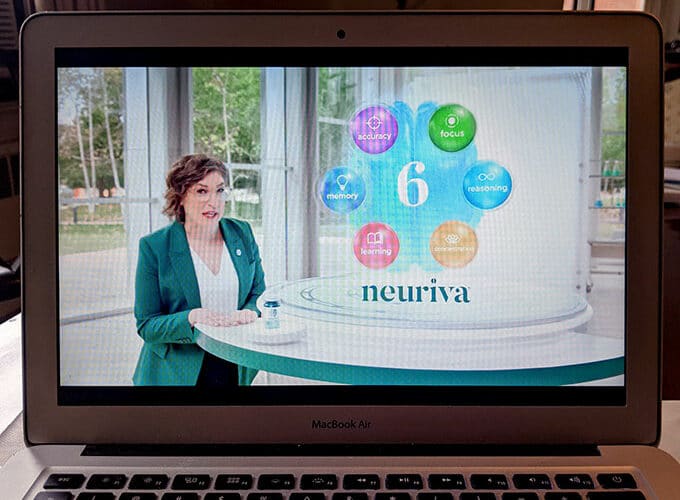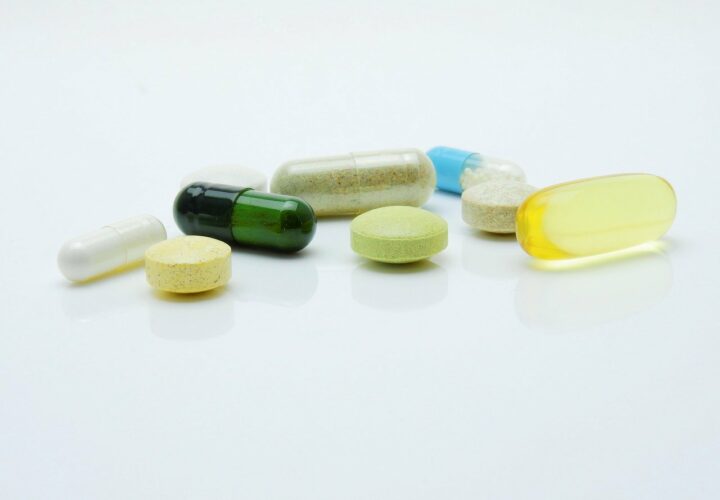Does Neuriva Plus work? Well, what we can say is that despite celebrity endorsements, the makers of this pricey brain supplement have been barred by law from claiming its benefits are backed by science.
Would you take a supplement — for example, brain health supplement Neuriva Plus — that claims to boosts your brain function? After all, Mayim Bialik, new Jeopardy co-host, and actress known for her role in Big Bang Theory personally vouches for it.
But the company behind the supplement, Reckitt Benckiser, settled a lawsuit in April of 2021 that prohibits them from claiming their product’s stated benefits are “backed by science.” After the suit, Reckitt Benckiser commenced the mandated process of removing all “clinically proven” or “science proved” language on product labeling and ancillary marketing, and changing it to “clinically tested,” “science-tested,” or similar (and softer) language.
That lawsuit was not the first of its kind. Dietary supplements may be a $40 billion dollar industry, but when it comes marketing these products, which don’t fall under the purview of the Food and Drug Administration, it’s less of a medical empire and more of a “Wild West.”
According to Neuriva’s official website, which sports a grinning Bialik with the quote, “I love the science behind Neuriva,” the supplement costs $44.99 for 50 gummy supplements, enough for 25 days. A year’s supply of these supplements would cost more than $650.
“In my opinion, the data on Neuriva Plus is unconvincing in relation to brain health,” Dr. Timothy G. Dinan, widely published psychiatrist and emeritus professor of psychiatry at University College Cork, told Being Patient over email at the time, adding that the product lacked “an adequately powered, placebo-controlled study to demonstrate efficacy.”
Neuriva’s Unproven Key Ingredients
What are these two ingredients included in the Neuriva Plus supplement? Looking at the claims from the Amazon listing, it claims that an extract from the coffee cherry extract and phosphatidylserine have a positive effect on brain performance.
In a Psychology Today article reviewing these ingredients, Dr. Gary Wenk, professor of psychology, neuroscience, molecular virology, immunology and medical genetics at the Ohio State University and Medical Center, called it “tasty snake-oil.”
There are very few studies on this coffee cherry extract, with two studies conducted by the same nutraceutical company, in older adults. This coffee cherry extract is a molecule called an antioxidant, which means it may reduce levels of cellular stress. But there is no scientific consensus or strong evidence supporting coffee cherry extract as part of a healthy lifestyle.
In another article, Dr. Harriet Hall, an advisor to Quackwatch and an associate editor of blog Science-Based Medicine, also noted that coffee cherry extract may increase the levels of brain-derived neurotrophic factor, but the connections between this factor and cognition is unclear.
Additionally, one of these studies on the coffee cherry extract, which featured a sample size of just eight people, was published in a journal whose publishing company has been accused by a consensus of researchers of “predatory behavior” and has been known to publish research with little or no proper peer review.
Meanwhile, phosphatidylserine is a fat molecule important to cell membrane integrity. It is part of the sheath that covers parts of neuronal cells to speed up nerve conduction.
However, the existing research in peer-reviewed journals that examines the effects of this supplement on the healthy brain are relatively small and few. Similarly, there is a lack of strong evidence supporting the use of phosphatidylserine for cognitive health. Wenk also mentioned that there isn’t any evidence that dietary intake of phosphatidylserine will increase the amount of this nutrient reaching the brain.
Natural supplements can actually cause harm
In a news release, Bialik, who has been criticized for promoting pseudoscientific misinformation about childhood vaccination schedules and who advocates against hormonal contraception despite a consensus of evidence that it is safe, emphasized the importance of incorporating a holistic approach to health.
“My hope is to inspire others to do more for their brain through a holistic approach and incorporate Neuriva into their daily health routine, just like it’s become part of mine.” Bialik said. “Could this nutritional supplement still be healthy, even without clear evidence?”
Supplements don’t go through the same stringent health and safety checks as pharmaceuticals. Prohibited, unlisted, and even dangerous ingredients are regularly found in health supplements. Even if the ingredients are present as stated in the bottle, their natural source does not mean that they are healthy.
And just because something is an “antioxidant” doesn’t mean it should automatically be incorporated into one’s daily health routine: research about their benefits — and risks — is mixed.
According to Dr. Pieter Cohen, associate professor of medicine at Cambridge Health Alliance, because there aren’t enough large-scale clinical trials testing supplement efficacy, it’s difficult to determine whether a person’s self-reported benefit is due to the placebo effect or other subjective variables, or if improvement can be directly attributed to the supplement itself.
“If I wanted to profit by selling a health product that had no proven benefits, I too would turn to supplements,” Cohen told Being Patient over email. “What’s convenient about selling supplements is that you do not need any proof from human trials, or even animal trials, that they work. Even if there’s never been a high quality study of the product, you can claim it maintains brain health or other similar claims.”
Nutritional scientists caution against using supplements, suggesting instead that eating a diet rich in fruits and vegetables, which contain these beneficial molecules. While Bialik has achieved a PhD in neuroscience, no celebrity’s opinions overturn a consensus of evidence (or the lack thereof).
This information does not constitute medical advice and it should not be relied upon as such. Consult with your doctor before modifying your regular medical regime.
UPDATE APRIL 3, 2023: This article from September 3, 2021 was updated with additional context to help our readers better understand whether brain health supplements can actually help with memory, cognition, symptoms of cognitive decline and similar.






I have read that the data to support Lilly’s Alzheimer drug is very weak. Is this true?
I’m disappointed …I thought that neuriva could help me with my mind. This is just a lie. I thought it would help my mind. I tried Adderall though it caused me to be angry. Don’t know what else to do. I am so disapointed